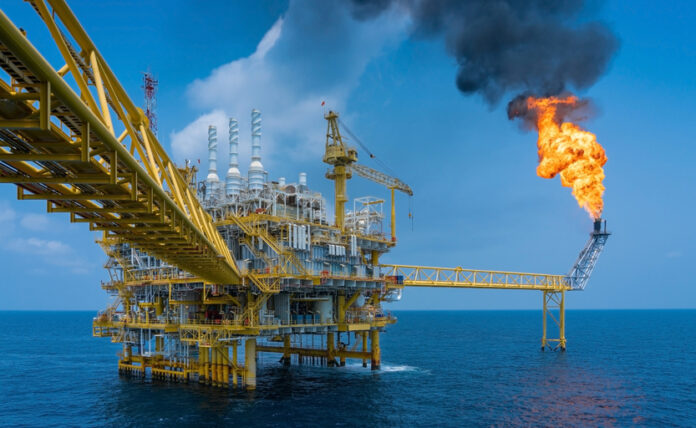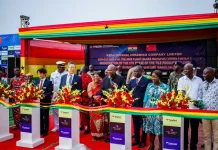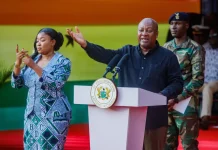JOHANNESBURG—South Africa, February 2022/ — Africa’s vast oil and natural gas resources represent a critical solution to the continent’s energy crisis and its unprecedented degree of energy poverty.
With a population of over 600 million living without access to reliable electricity, and as global pressures increase to transition to cleaner energy sources, fossil fuel financing restrictions hinder the development of resources that could lift millions out of poverty and drive the continent’s economic growth.
As international financing channels are redirected away from oil and gas, Africa needs to come up with its own capital raising solutions and rely on its own projects if it is to make energy poverty history by 2030.
African Financial Institutions
Considering the shift in international capital flows in Africa, regional financial institutions have a progressive role to play in financing oil and gas developments. African-based and -focused, these institutions will be significant for the continent’s development and the alleviation of energy poverty.
As such, institutions such as the African Development Bank (AfDB) and the African Export-Import Bank (Afreximbank) have an increasingly valuable role to play in financing Africa’s energy future. The AfDB currently has an active portfolio of energy projects totaling upwards of $12 billion, while, at the end of 2020, Afreximbank’s total assets and guarantees stood at $21.5 billion, with shareholder funds amounting to $3.4 billion.
“If we insist on the exploration of our oil and gas reserves when the world is cutting down on investments in the sector, we must set a financial institution, an African Energy Bank, to develop the oil and gas sector,” stated H.E. Timipre Sylva, Nigerian Minister of State for Petroleum Resources, adding, “This is the time for us to get out of Nigeria to market this investment environment. We must not go out of Africa to attract investments. We must set up structures to fund our system.”
Many stakeholders – including the Afreximbank, the Nigerian National Petroleum Corporation, and the African Energy Chamber – have reiterated the role an African Energy Bank will play in financing Africa’s energy future. The pan-African institution would be critical for the continent’s energy developments, enabling oil and gas projects while minimizing the reliance on foreign capital.
The development of an energy bank will be imperative towards phasing out the funding of hydrocarbon-directed investments as the continent undergoes its energy transition plan, which would require an estimated annual investment of $40 billion. Therefore, an African Energy Bank will open the oil and gas sector for massive, intra-African investments, serving to encourage economic development and alleviate energy poverty.
“We have all that is required to develop and promote the energy transition, and alleviate energy poverty, but we never focus on ourselves as a continent,” stated Professor Benedict Oramah, President of Afreximbank, who added that, “The urgency of the future has arrived. It is here, now. We don’t need lip service anymore, we need action, cooperation, and most importantly, we need energy.”
As sub-Saharan Africa’s leading oil producer, Nigeria is expected to commence operation on up to a hundred oil and gas projects between 2021 and 2025.
The flagship Assa North-Ohaji South gas-processing plant, with a capacity of 300 million cubic feet of natural gas per day, represents a key project in the West African country’s gas-to-power sector, while the $7 billion Nigeria Liquefied Natural Gas (LNG) Expansion Project is expected to commence operations in 2025, increasing the annual production capacity of LNG to more than 30 million tons per year.
Meanwhile, new discoveries and field development projects in Mozambique, namely its LNG Project, which is on track to deliver LNG by 2024, will require more financing to improve local consumption and use of energy resources to encourage economic development. Additionally, Namibia has announced the significant discovery of oil and gas by energy supermajor, Shell, in the country’s offshore, which is expected to spur a wave of investment in the southern African country.
Public Private Capital Mechanisms
Reinvesting capital into domestic developments, as well as cross-border infrastructure projects, will allow oil producing nations to drive African economic growth and alleviate energy poverty. Mature oil and gas markets such as Angola, Nigeria, and Libya – with petroleum exports totaling $27.7 billion, $18.7 billion, and $5.7 billion, respectively – can reinvest revenues attained through exports into new project developments both domestically and continentally.
Additionally, integrating a myriad of parties within capital raising can ensure the development of large-scale projects that are often too large for independent investors to finance. A prime example of this is Ghana’s Sankofa Gas Project and TotalEnergies-led Mozambique Liquefied Natural Gas Project. These projects successfully mobilized $1.35 billion and $15 billion, respectively, from a myriad of lenders.
Namibia, with reserves estimated at 11 billion barrels of oil and 2.2 trillion cubic feet of natural gas, has also been a major attraction for both regional and international energy companies as new explorers begin to demonstrate their interest in the country’s high potential oil and gas market.
Developments such as these are imperative to diminishing reliance on financial aid, developing an environment through which Africa may rely on its own resources and financing, and through which energy may serve to promote development and socioeconomic growth, all the while alleviating energy poverty, diversifying the continent’s energy mix, and adhering to the global call for an energy transition.
“Creating our own market driven models to finance energy projects will send a clear signal to the marketplace that Africans are seeking to become leaders in scaling up private capital. It will show that we are advancing natural gas development and infrastructure while supporting low-carbon investments.” Stated NJ Ayuk, Executive Chairman of the African Energy Chamber.
As African stakeholders look towards innovative financing mechanisms to fund the continent’s energy and economic future, platforms such as African Energy Week (AEW) 2022 – which will take place in Cape Town on 18-21 October – serve as the ideal place to secure investment, sign deals, and form partnerships that will advance African energy growth.
AEW 2022 is committed to promoting African capital raising solutions, and through progressive investor forums, collaborative panel discussions, and market-driven seminars, the event will introduce African energy projects to regional financial institutions, ushering in a new era of integration and financial security.
AEW 2022 is the AEC’s annual conference, exhibition, and networking event. AEW 2022 unites African energy stakeholders with investors and international partners to drive industry growth and development and promote Africa as the destination for energy investments. For sales related inquiries please contact register@AEW2021.com.











































